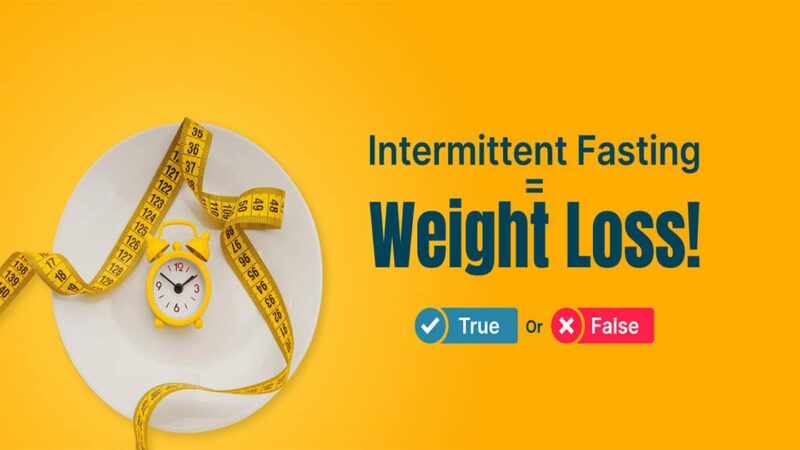Coffee Good or Bad for Weight Loss?

As you sip your morning coffee, you could be asking yourself, “Is coffee good for weight loss?” We’ve come to love coffee as an energy booster, which is why it’s a part of our daily routine, but studies also show that it may be beneficial for people looking to reduce their body fat.
Can Drinking Coffee Help You Lose Weight?
Yes, coffee can be good for losing weight along with other strategies, such as limiting the number of carbohydrates (especially refined carbs) in your diet,increasing protein intake, and following an exercise routine.
In Fact coffee aids weight loss because it helps you consume fewer calories throughout the day. Besides that, coffee improves your stamina, which allows you to push harder when you hit the gym. It also acts as an appetite suppressant and increases your metabolism.
Research shows that other than caffeine, coffee contains bioactive compounds — chemicals found in plants in small amounts, which have beneficial effects — such as chlorogenic acid and trigonelline.
Coffee also has small amounts of minerals, including potassium, magnesium, calcium, and chromium .
How Drinking Coffee May Support Weight Loss?
There’s evidence showing that coffee helps you lose weight. Here are some science-backed reasons to explain the impact of coffee on your weight.
It contains nearly zero calories:
Conventional wisdom says that you need to eat fewer calories than usual to lose weight. However, it’s also important to remember that the source of your calories also matters, since certain foods affect your satiety and hormones differently!
But taking the “calories in versus calories out” model into account, plain black coffee (without creamer and syrup) is very low in calories. For example, one cup serving has only 2 calories.
For this reason, coffee is a great addition to an intermittent fasting plan. Since fasting restricts calories,You can drink black coffee without breaking a fast.
Improves exercise performance:
Studies have found that coffee helps individuals who workout lose weight by improving their endurance and performance for high-intensity exercise.
So, it comes as no surprise that many athletes use caffeine as one of their go-to supplements.
In fact, some professional and recreational endurance athletes (such as those who do marathons) take small to moderate doses of caffeine 30 minutes before a race or training .
According to a controlled trial cyclists who consumed a low dose (100 mg) and moderate dose (200 mg) of caffeine had improvements in their time-trial performance .
Furthermore, a moderate dose boosted performance more than a low dose, including when given during a prolonged steady-state exercise .
What about high-intensity workouts?
Adult male subjects who consumed caffeine for a high-intensity cycling exercise didn’t get exhausted sooner. Not just that, but there was a significant decrease in their subjective fatigue an hour after ingesting caffeine .
Another way coffee help with weight loss during exercise is by boosting mental alertness and mood . This allows you to get the most out of your sweat session.
Given these benefits, it makes sense to use coffee during situations (like working out) that are demanding in nature.
May increase resting metabolic rate:
Caffeine is naturally found not just in coffee beans but also in cacao. It may speed up your metabolism, which plays an important role in weight loss.
By boosting your metabolism, you’re able to burn more calories whether at rest or during physical activity .
Early studies have found that caffeine or coffee stimulates the metabolic rate in obese, lean, and normal-weight individuals.
However, people become more tolerant of caffeine over time — yes, caffeine tolerance does exist. In that case, it’s best to not rely on caffeine as a long-term weight loss strategy.
If you plan on drinking coffee for weight loss, it may be a good idea to consume it less often. For example, you could limit it to only twice per week.
Acts as a natural appetite suppressant:
Yes, coffee such as BODIED Coffee has been shown to decrease appetite, leading to reduced food intake.
This is due to caffeine and probably chlorogenic acid,which is found in high concentrations in coffee. It’s a phenolic compound that has also been shown to reduce fasting blood glucose and prevent or manage diabetes .
In one study, researchers found that overweight or obese subjects who consumed a moderate amount of coffee — 6 mg of caffeine/kg body weight or 2-4 cups — ate less during lunch and the rest of the day .
More importantly, don’t ignore other science-based ways to naturally reduce your appetite, such as getting more protein into your diet and eating healthy fats.On that note, an important benefit of following a keto diet (which is high-fat and moderate-protein) is that it makes you feel less hungry .
What Kind of Coffee is Best for Weight Loss?
Despite the benefits of caffeine for losing weight,you should know that not all coffee is created equal. BODIED coffee — not instant coffee with cream and sugar — is the best option for weight loss.Sure, you can have espresso, Americano, drip coffee,or iced black coffee as long as you avoid adding regular sugar, creamer, milk, and even chocolate which will increase its calorie content. Again, one cup of black coffee contains only 2 calories.
Some people like making their coffee more flavourful,but there are other ways to make it extra special without impeding weight loss.
Moreover, just because black coffee is okay doesn’t means you can consume it unlimitedly. Too much caffeine can lead to unpleasant side effects, such as insomnia, irritability, fast heartbeat, nervousness, and frequent urination.
If you’re experiencing these side effects, reducing your caffeine intake may be a good idea. As a general rule, limit yourself to 4 cups of coffee per day, which is equivalent to 400 milligrams of caffeine .
What is the Best Time to Drink Coffee for Weight Loss?
Many people drink coffee as soon as they wake up, but some believe that delaying coffee to about 2-3 hours after waking up prevents further increases in cortisol levels.
Cortisol, your primary stress hormone, naturally peaks early in the morning, although cortisol levels vary from person to person.
Since caffeine in coffee increases cortisol secretion,drinking coffee when your cortisol is already high could be detrimental . However, this may not be the case for people who consume caffeine on a daily basis, as one study has shown.
That said, whether you drink coffee first thing in the morning or at least 2 hours after waking up is totally up to you. Pay attention to how you feel — your energy levels and mood — on both approaches.
What about the latest time you should drink coffee?
On average, people need to avoid caffeine about 4-6 hours before bedtime. This is the time it takes for your body to process or use up half of what you consumed.For those who are highly sensitive to the effects of caffeine, avoid coffee (or any caffeine-containing beverages) after 3:00 pm or during dinner time.
If exercising is part of your daily habit, the best time to drink coffee for weight loss is 30-60 minutes before working out. This is the time it takes for caffeine to reach peak levels.
The next time you decide to drink coffee before exercising for a performance boost, schedule your workout in the morning, early afternoon, or before dinner.
What Can You Add to Your Coffee to Lose Weight?
Coffee with plenty of calories and sugar contributes to weight gain, which is why we recommend sticking to plain black coffee. But for those who want creamy and flavourful coffee while reaping its weight loss benefits, they can mix in MCT oil and grass-fed butter,or collagen protein powder.
Collagen powder is an excellent source of protein,which also supports weight loss by increasing satiety.Protein’s satiety-boosting effect leads to a lower food intake. In addition, protein has a higher thermic effect compared to carbohydrates and protein, meaning that protein boosts your metabolism and the calories you burn.Just add one scoop of collagen to your coffee and start experiencing its benefits.
Another ingredient for your coffee that may aid Weight loss is cinnamon. A research study found that cinnamaldehyde — an essential oil found in cinnamon — acts directly on fat cells, inducing the fat-burning process .
A pinch of cinnamon imparts a little sweetness and a warm vanilla-like fragrance that coffee lovers thanks!
Finally, you may add a small amount of stevia or monk fruit to sweeten your coffee without using sugar. Stevia and monk fruit are natural keto-friendly sweeteners that do not affect your blood sugar levels. They’re also calorie-free, which makes them great for black coffee during intermittent fasting.
Frequently Asked Questions:
How much coffee should you drink a day to lose weight?
Drink no more than 4 cups of coffee or 400 milligrams of caffeine for weight loss. Consuming more than 400 milligrams could increase the risk of side effects, such as palpitations, nervousness, and insomnia.
Note that insomnia due to excessive caffeine intake may hinder weight loss by increasing your appetite. A lack of sleep makes you want to eat more and crave unhealthy, high-calorie foods.
Can coffee reduce belly fat?
Yes, coffee helps in reducing fat in your abdominal area (and overall body fat) by increasing your metabolism. What you add to your coffee can also support your weight loss goals, such as MCT oil and grass-fed butter.
I can’t have caffeine – does decaf coffee do any good for weight loss?
While decaf coffee has 97% of its caffeine removed,it may still contribute to weight loss by reducing your calorie intake. Like regular black coffee, decaf Coffee has nearly zero calories. Also, decaf coffee has chlorogenic acid which regulates blood sugar .
Can drinking coffee make you gain weight?
Coffee in and of itself does not cause weight gain.Some coffee drinkers who gain weight do so because of their coffee drinking habits, such as adding sugar, syrups, and creamers. These ingredients cause blood sugar spikes and increased cravings for sweet-tasting foods.
The Bottom Line
Is coffee good for weight loss? The answer is yes, coffee is definitely one of the things you can take to lose weight naturally.
Keep it simple — BODIED coffee works best for weight loss — or be mindful of what you’re adding to coffee for better taste.
In that case, choose healthier add-ins like MCT oil, grass-fed butter, a keto-friendly collagen protein powder, a pinch of cinnamon, and natural sweeteners (stevia or monk fruit).







